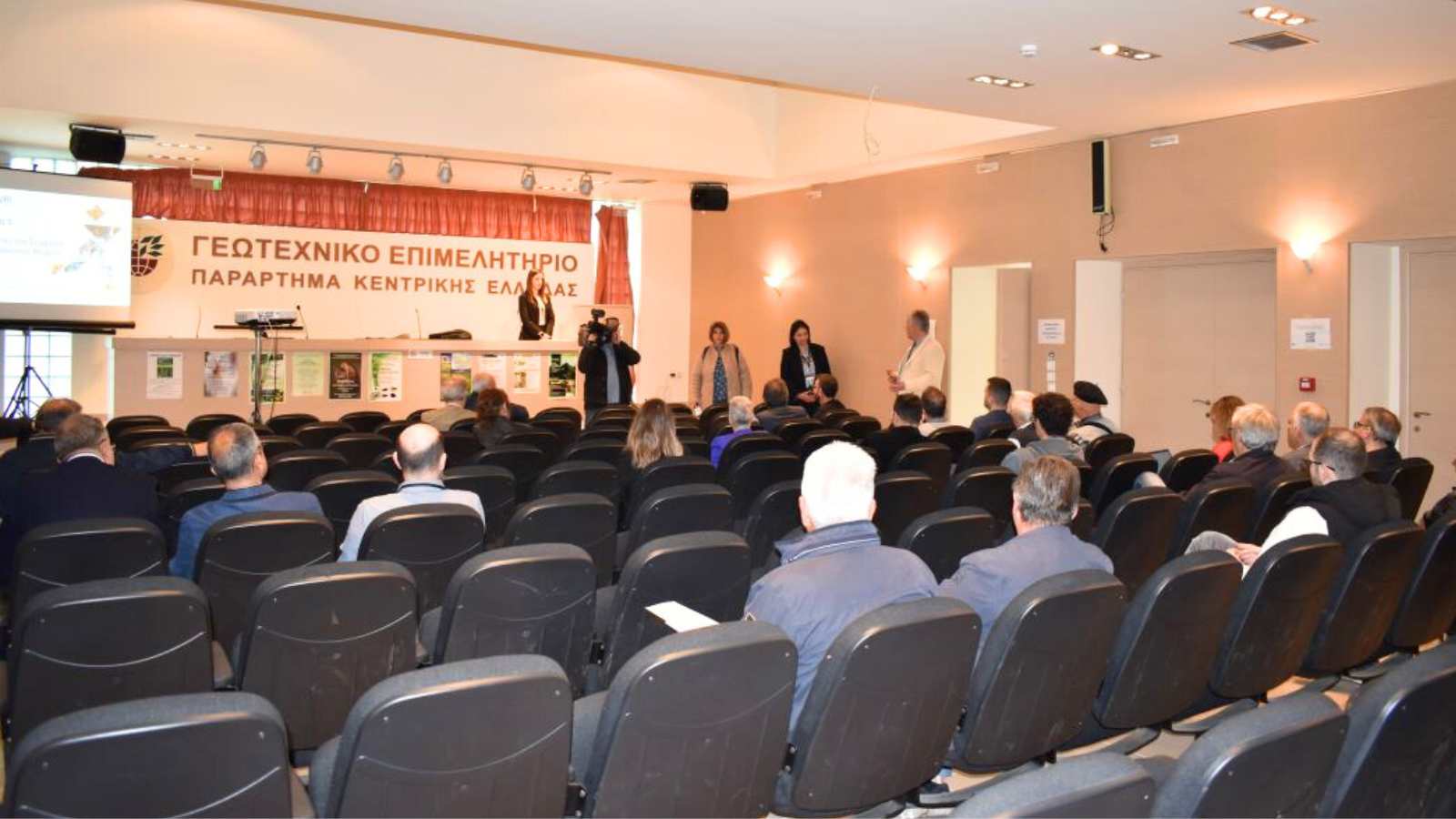Marking an important leap towards the incorporation of WEFE Nexus integrated natural resources management into policy making, and a great milestone for the Horizon 2020 REXUS project, the key measures proposed by REXUS for the Pinios river basin pilot have been approved and included in the 2nd Revision of the River Basin Management Plan of the Thessaly basin.
A suite of measures offering sustainable solutions for the challenges facing Greece’s agricultural heartland
REXUS’s latest achievement in its efforts to translate Nexus theory into practice, are a set of measures that integrate Nature-based Solutions and grey infrastructure, tackle sectoral challenges, and establish a resilient framework for sustainable natural resource management and climate change mitigation for flood-stricken Thessaly, Greece.
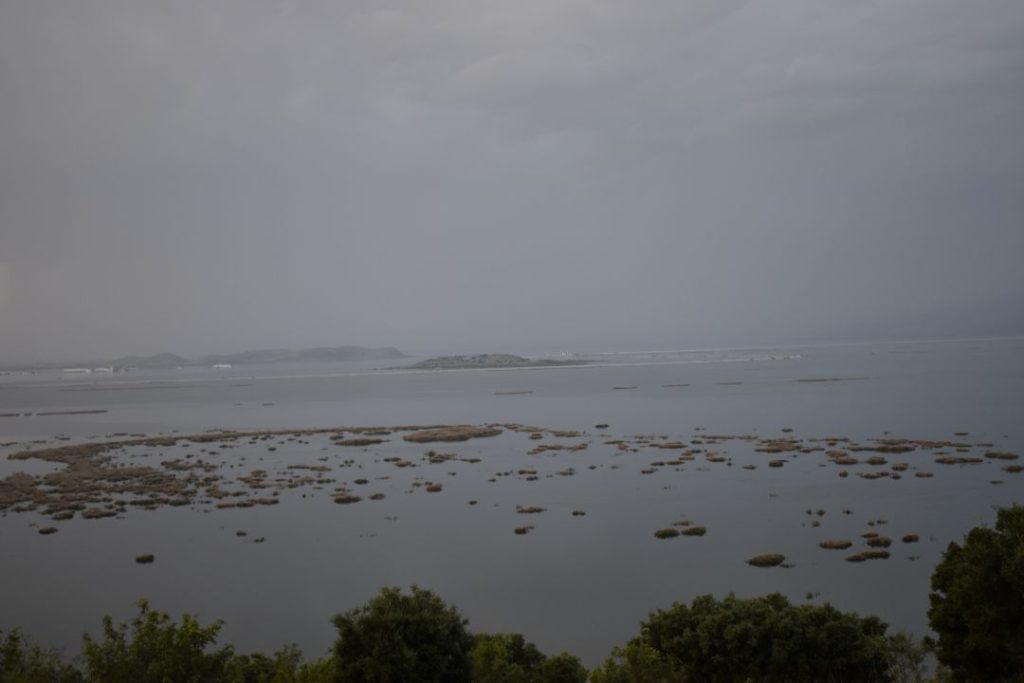
Historically, Thessaly, Greece’s most productive agricultural region is facing intense challenges of water scarcity, including groundwater depletion, expected to be exacerbated by intense climate change impacts in the region. The rise in energy prices is also challenging the economic viability of crops. The current juncture is particularly sensitive, as Thessaly is still reeling from the devastating floods caused by storm “Daniel” that ravaged the area in September 2023.
Through a 3-year participatory stakeholder process, REXUS prioritised 20 out of a total list of 120 measures, clustered in 4 broad categories that address critical issues of the basin. They integrate suitable Nature-based Solutions with grey infrastructure, span across all sectoral challenges of the basin, providing a sustainable framework for the management of natural resources and a safety net from climate change impacts. Following the REXUS methodology, the measures provide solutions founded on input and know-how from key representatives across WEFE Nexus sectors. These stakeholders, some collaborating for the first time, include representatives from the central and local government, management authorities, farmers’ cooperatives, academics, and experts with deep knowledge of Pinios’s challenges. The measures are based on robust data and methods that have been implemented and assessed in real-life conditions. In total, 117 measures were identified and further prioritized by stakeholders based on a comprehensive and well-justified set of 8 discrete criteria, such as sustainability, effectiveness, maturity and enabling environment as well as cost and negative side-effects.
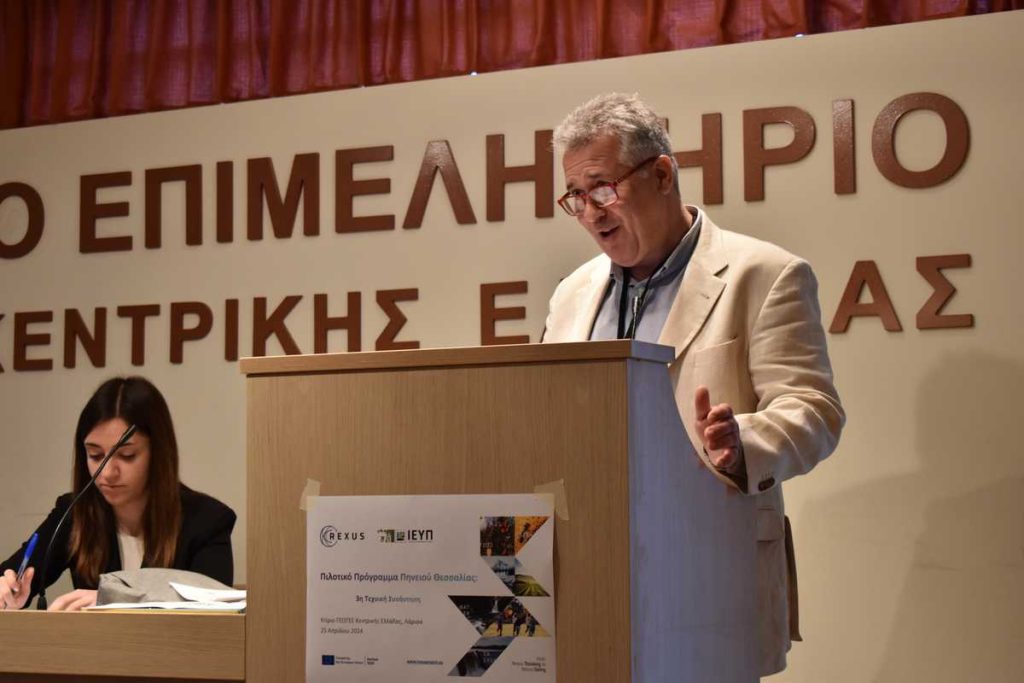
During the 3rd Technical Pinios Pilot Workshop, Dr. Andreas Panagopoulos, Research Director of SWRI and his team updated stakeholders on the progress of REXUS in the Pinios River Basin.
The measures can be grouped into four categories:
- Eco-flood protection measures, that build resilience to floods, whilst promoting and boosting ecological values, such as biodiversity, and augmenting groundwater recharge.
- Energy efficiency measures, that opt for an increase in the percentage of renewable energy produced and the efficiency of the energy produced, such as implementation of new technologies for more efficient use of Renewable Energy Sources, upgrading and maintenance of energy distribution and transmission networks and waste utilization for energy production
- Water resources management and optimization measures that focus on agricultural water use, aiming to increase water availability via better and increased storage capacity, improved and efficient transportation and implementation at the field, systematic monitoring of water status-consumption-leaks-illegal uses, and
- Measures that promote viable agroecological farming that support the sustainability and viability of farming through guidance, cutting production costs and promoting a transition to eco-friendly practices, while empowering farmers through collective schemes.
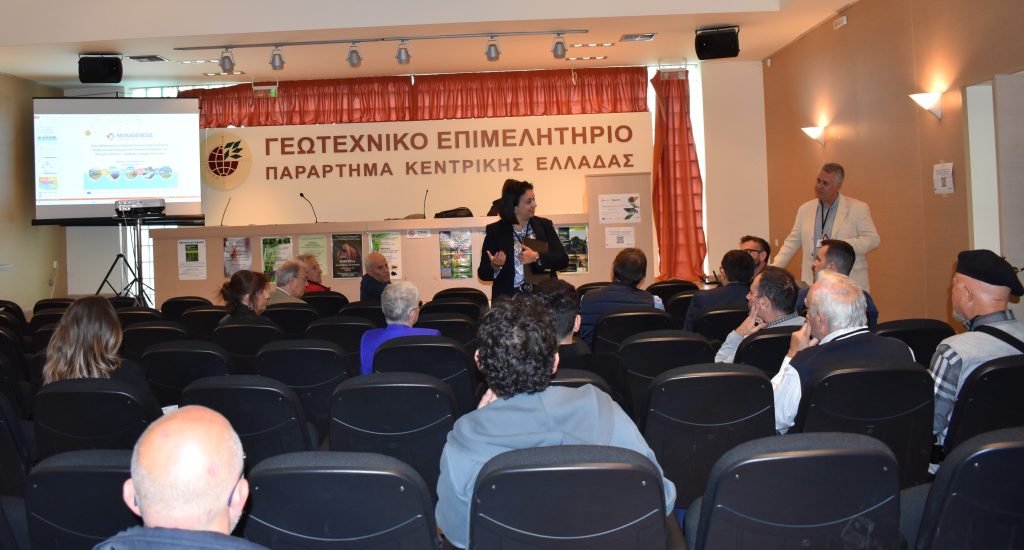
At the Plenary, Ms. Maria Papadopoulou of the National Technical University of Athens presented the Sister Horizon2020 Project, Nexogenesis.
Strong public interest
The value and innovative approach of REXUS’s methodology was featured on Greek prime time TV news. Moreover, the workshop received broad coverage by the local TV, radio and online portals as well as daily and weekly newspapers featuring Dr. Andreas Panagopoulos, Research Director of SWRI, and Dr. Vasilis Pisinaras, Associate Researcher, SWRI, who analysed REXUS’s vision for the region and the process of preparing applicable solutions for flood-stricken Thessaly together with stakeholders.
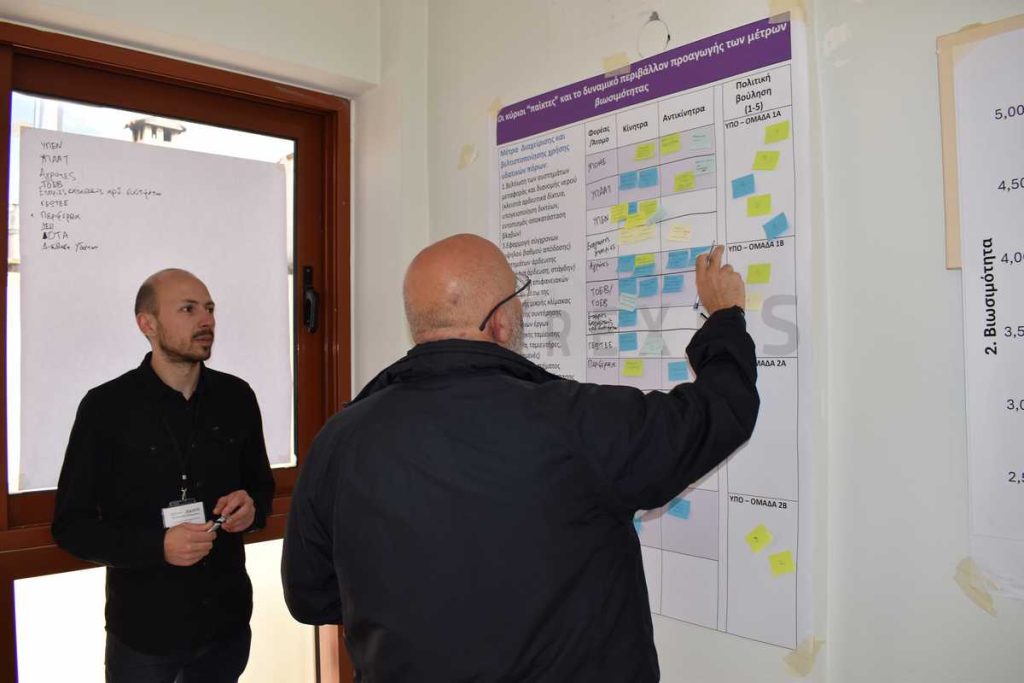
In two separate groups, participants designed a realistic Roadmap for the implementation of the selected measures.
The measures were presented and validated at the REXUS Pinios pilot 3rd and final stakeholder workshop, organised by REXUS local pilot leader Soil and Water Resources Institute of the Hellenic Agricultural Organization “DIMITRA” (SWRI) on the 25th of April in Larisa, the capital of Thessaly.
At the workshop, the SWRI team provided an update of the Nexus tools currently at their final stages of development and, after the presentation and validation of the measures and their benefits, participants compiled a realistic Roadmap for the Pinios River Basin. Following the REXUS philosophy of translating theory into practice, they suggested concrete policy recommendations for the implementation of the selected measures, that will ultimately be available to policy makers.

